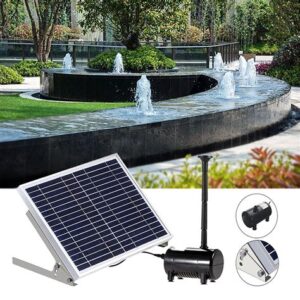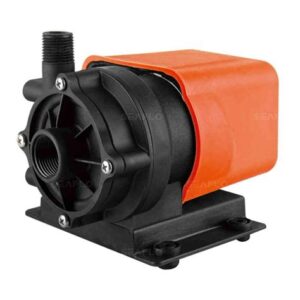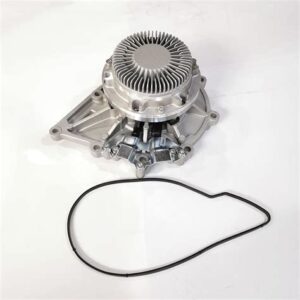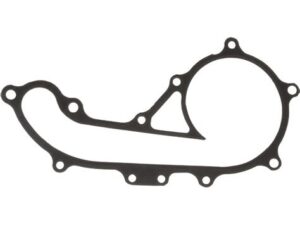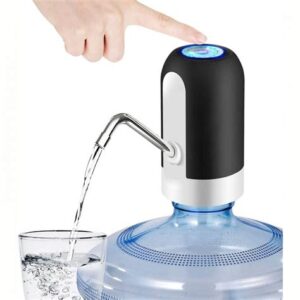booster water pumps, Explore the basics, benefits, and maintenance tips for booster water pumps to enhance water pressure and find the right one for your home.In today’s fast-paced world, reliable access to water is essential for every household. Enter booster water pumps—innovative solutions designed to enhance your home’s water pressure and ensure a steady flow for all your needs. Whether you’re tired of weak showers, sluggish appliances, or low water flow in your garden, booster water pumps could be the game-changer you’ve been seeking. This article explores the basics and benefits of these powerful devices, how they improve water pressure in your home, and tips for choosing and maintaining the right pump. We’ll also provide installation advice to help you maximize the performance of your booster water pump. Discover how this essential tool can elevate your daily water experience, ensuring efficiency and comfort in your home.
Understanding Booster Water Pumps: Basics And Benefits
Booster water pumps are essential devices designed to increase water pressure, making them invaluable for residential and commercial applications. By using these pumps, users can overcome issues associated with low water pressure, ensuring efficient water flow throughout the property.
The functionality of a booster water pump centers around enhancing the existing water supply. Typically, these pumps draw water from the main supply line and then pressurize it before distributing it to various fixtures and appliances, such as showers, faucets, and irrigation systems. This capability is particularly crucial in multi-story buildings or homes situated at higher elevations, where water pressure can be insufficient for effective distribution.
In addition to improving water pressure, booster water pumps come with several benefits:
- Improved Water Flow: They provide a steady and strong flow of water, enhancing comfort and convenience in daily activities.
- Energy Efficiency: Many modern booster pumps are designed to operate efficiently, consuming less electricity while delivering optimal performance.
- Versatility: They can be used in various applications, from residential settings to agricultural irrigation and industrial processes.
- Reduced Water Waste: By ensuring sufficient pressure, these pumps help minimize water wastage, contributing to better resource management.
Overall, understanding the basics of booster water pumps and their benefits can help homeowners and businesses make informed decisions regarding water supply solutions. Properly selected and maintained, a booster pump can lead to enhanced water delivery and added convenience in everyday life.
How Booster Water Pumps Improve Water Pressure In Your Home
Booster water pumps are essential devices that enhance water pressure in various residential setups. Many households experience low water pressure due to reasons such as long pipe runs, fixtures located at higher elevations, or insufficient supply from the municipal system. By strategically using booster water pumps, homeowners can significantly improve their water delivery systems.
When a booster water pump is installed, it acts as an intermediary between your existing water source and the points of use, such as taps and showers. These pumps draw water from the main supply and increase the pressure before sending it to various locations throughout the house. This results not only in improved flow rates but also in maintaining a consistent pressure across multiple outlets, which is particularly beneficial when multiple fixtures are in use simultaneously.
The increased pressure provided by booster water pumps can lead to various advantages, including:
- Smoother operation of kitchen and bathroom fixtures.
- Enhanced performance of appliances that require a specific water pressure, such as dishwashers and washing machines.
- Improved garden watering and irrigation systems, ensuring that water reaches all areas effectively.
booster water pumps play a vital role in elevating the overall experience of water usage in your home, making them a worthy investment for anyone facing low water pressure challenges.
Choosing The Right Booster Water Pump For Your Needs
When it comes to selecting the appropriate booster water pump for your specific requirements, several factors should be considered to ensure optimal performance and efficiency. Here are some essential points to guide your decision:
1. Determine Your Needs: Start by assessing the reasons you require a booster water pump. Whether it’s to enhance water pressure for household use, irrigation, or industrial applications, understanding your needs will help narrow down your options.
2. Calculate Required Pressure: The desired water pressure in your home or business is critical. Measure the current water pressure with a pressure gauge, and decide how much of a boost you need. Most residential systems function well between 40 to 60 PSI.
3. Flow Rate Requirements: Evaluate how much water you will need at peak usage times. This measurement is usually defined in gallons per minute (GPM) and should match the specifications of your selected booster water pump.
4. Vertical Lift Considerations: If you are installing the pump at a lower elevation than where the water will be delivered, consider the vertical lift—this is the height the water needs to be pumped. Ensure that your chosen pump can handle that distance effectively.
5. Pump Size and Power: Booster pumps come in various sizes and power ratings. A small home may only need a modest pump, while larger properties or commercial applications may require a more robust solution. Check the pump’s horsepower ratings to match your specific needs.
booster water pumps, 6. Energy Efficiency: Look for models designed to be energy-efficient, as this can significantly reduce operational costs over time. Many modern booster water pumps come with energy-saving features.
7. Noise Levels: If noise is a concern, especially in residential areas, consider noise ratings of the pumps you are evaluating. Some models operate much quieter than others, making them a better fit for homes.
8. Brand Reputation and Warranty: Opt for reputable brands known for durability and performance. Always check the warranty offered, as it can provide you peace of mind regarding the pump’s longevity and reliability.
9. Installation Requirements: Some booster water pumps require professional installation, while others allow for DIY setups. Check the installation guidelines and consider your skill level when making a choice.
booster water pumps, 10. Consult with Professionals: Finally, if you are still unsure, consult a plumbing professional or a specialist in water pumps. They can help assess your situation and recommend the best booster water pump tailored to your needs.
By carefully considering these factors, you can select the right booster water pump that meets your requirements and enhances the efficiency of your water system.
Installation Tips For Effective Booster Water Pump Operation
Installing a booster water pump can significantly enhance water pressure in your home, but proper installation is crucial for its effectiveness and longevity. Here are some essential tips to consider when installing your booster water pump:
By following these tips, you can ensure that your booster water pump operates efficiently, providing you with the enhanced water pressure you need.
Maintaining Your Booster Water Pump For Longevity And Efficiency
Regular maintenance of your booster water pump is crucial to ensure optimal performance, longevity, and efficiency. Here are some essential tips to keep your system running smoothly:
By following these maintenance tips, you can enhance the performance of your booster water pump and ensure it serves you well for years to come. Regular care not only extends the lifespan of the pump but also improves water pressure and overall efficiency in your home.
Frequently Asked Questions
What are booster water pumps used for?
Booster water pumps are designed to increase the water pressure in a plumbing system, making them ideal for high-rise buildings, irrigation systems, and rural areas with low water pressure.
How do booster water pumps work?
Booster water pumps work by utilizing a motor to propel water through the system, often employing a centrifugal mechanism to increase pressure and flow rate.
What are the different types of booster water pumps?
booster water pumps, The main types of booster water pumps include centrifugal pumps, positive displacement pumps, and variable speed pumps, each suited for different applications depending on pressure and flow requirements.
What factors should I consider when choosing a booster water pump?
When selecting a booster water pump, consider factors such as flow rate, pressure requirements, pump efficiency, energy consumption, installation space, and maintenance needs.
Can booster water pumps be used for irrigation?
Yes, booster water pumps are commonly used for irrigation to ensure adequate water pressure for sprinklers and drip systems, especially in areas with variable water supply.
Are there any common maintenance tips for booster water pumps?
Regular maintenance for booster water pumps includes checking for leaks, ensuring proper electrical connections, inspecting and cleaning filters, and monitoring pump performance to prevent failures.
What safety precautions should be taken when using booster water pumps?
When using booster water pumps, ensure proper installation, use protective gear, follow manufacturer guidelines, avoid running the pump dry, and regularly check electrical components for safety.
